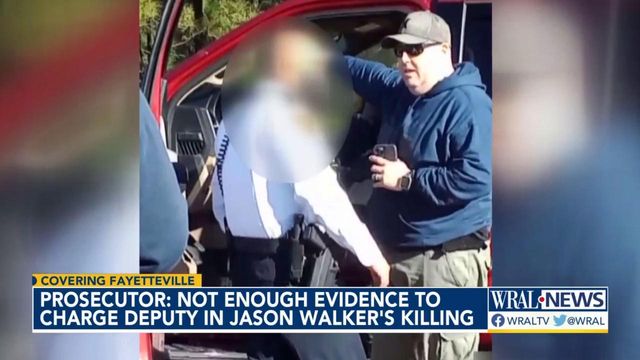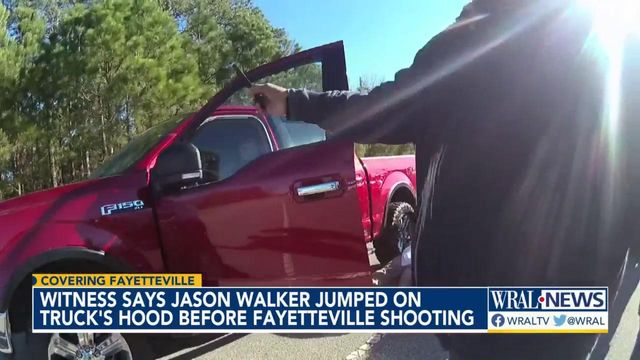Special prosecutor says not enough evidence to charge deputy in Jason Walker's killing
A special prosecutor said Thursday no charges will be filed against Cumberland County sheriff's deputy Jeffrey Hash, who is accused of killing Jason Walker.
Posted — UpdatedJason Walker, 37, died on Jan. 8 after witnesses said he jumped on the hood of Lt. Jeffrey Hash's truck along Bingham Drive near Shenandoah Drive in Fayetteville. Hash, who was off duty, admitted to exiting the truck and shooting Walker. Hash said it was to protect his family.
The State Bureau of Investigation conducted the investigation of Hash and turned the case over the prosecution to the North Carolina Conference of District Attorneys.
The NC Carolina Conference of District Attorneys made the decision not to file any criminal charges against Hash after reviewing the state's evidence.
Janice Walker, Jason's mother, said that her son's death was "very excessive."
"I know nothing can bring my son back, but I still seek justice for Jason," she said. "Jason knows what happened, God knows what happened, and the shooter knows what happened."
Hash's actions were protected under the state's castle doctrine, the prosecutor's letter said. The castle doctrine is a law that protects individuals' right to use deadly force if they believe they are in imminent danger, according to Spahos.
"We cannot view these events from the comfort of our desks after cool reflection, as Hash was not granted the luxury of time and reflection," Spahos wrote.
The special prosecutor said that Hash stopped his truck 30 feet from Walker, and for "an unknown reason" Walker ran toward Hash's truck and got on top of the hood.
"Walker then tore off the driver's side windshield wiper from the truck and began striking the windshield wiper," the letter states.
"This was consistent with Walker being on the hood of the truck and moving toward the driver's door when he was shot," according to the prosecution's letter.
"Jason should still be alive today. We will continue to push for transparency from the North Carolina State Bureau of Investigation and the family of Jason Walker is demanding murder charges be filed against Hash by the North Carolina Conference of District Attorneys," said civil rights attorney Ben Crump in March.
Janice Walker said that she hopes that the case will go before a grand jury.
"The only way for justice to prevail is that a grand jury decide this case," she said. "Yes it was murder, but was it excessive murder?"
• Credits
Copyright 2024 by Capitol Broadcasting Company. All rights reserved. This material may not be published, broadcast, rewritten or redistributed.






